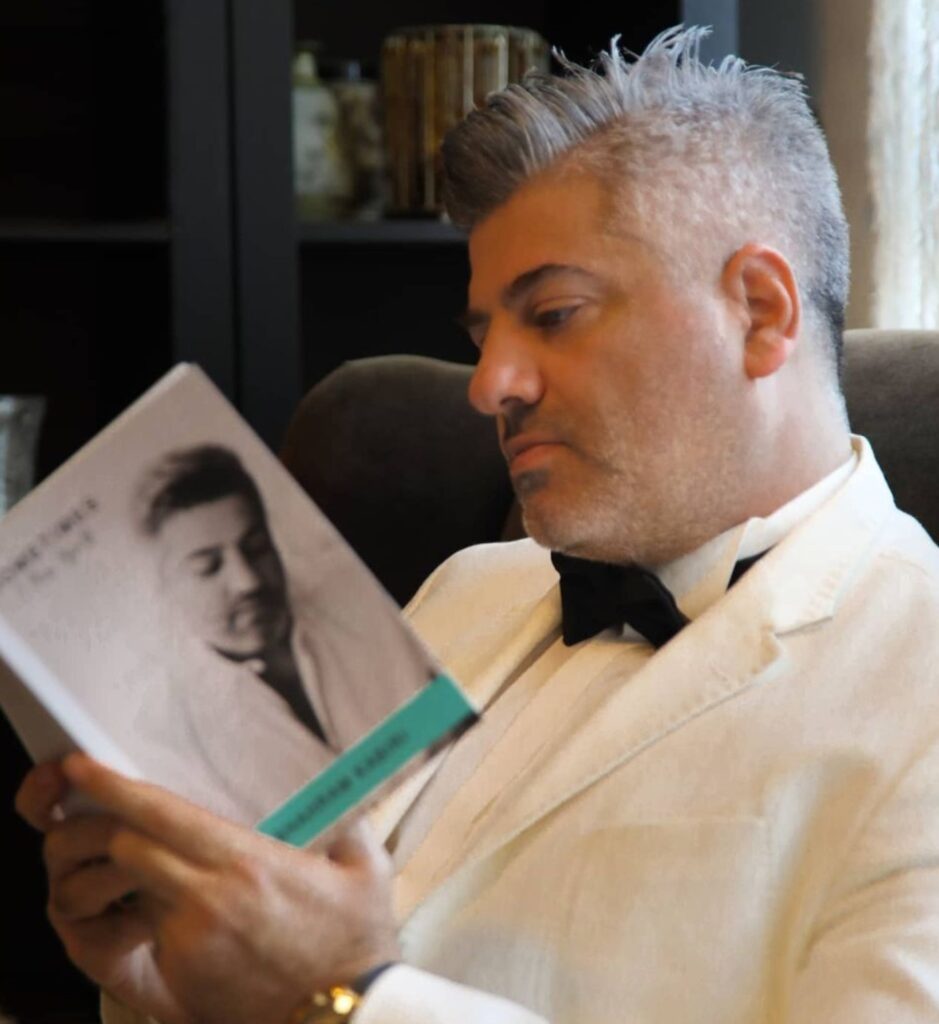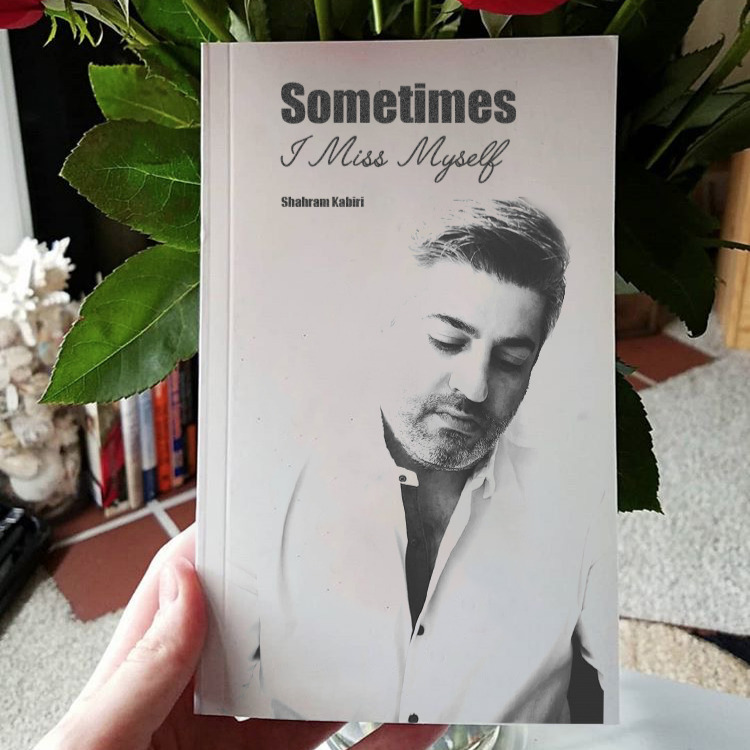Life was never easy, but today with growing inequality, rising unemployment, increasing pollution, natural catastrophes and pandemics that threaten the foundations of our societies, people around the world lost the direction of their lives and cannot envision a future. But where there is darkness, there will always be light and people willing to illuminate the lives of others. Shahram Kabiri is one of these beacons who guide and inspire others.
Through his poetry, this businessman and entrepreneur has built a successful artistic career that continues to rise and amaze us with each new book release. Although he is a successful person who stands out in multiple fields and disciplines, he is just like everyone else, someone who enjoys the essential and meaningful things in life, which makes people able to identify with his stories and thoughts.
With his books, Sometimes I Miss Myself and One Thousand Roses, he seeks to touch the hearts of readers and inject good vibes to help them through difficult times. Although anyone can find pieces of themselves in the words of Shahram Kabiri, his books were written especially for young people who need somehow to maintain a connection with the bright side of life; because we can only aspire to a better world through empowered youth and keeping the flame of hope alive.

Who is Shahram Kabiri?
Born in Dubai (United Arab Emirates) of Iranian parents, Shahram Kabiri had a happy childhood where he enjoyed great passions that to this day are part of his life, such as sports, reading and writing. He was an avid reader since a child, and in books like Jean-Christophe, by Romain Rolland, and Les Misérables, by Victor Hugo, he found true sources of inspiration to forge a style that he would consolidate over the years. It was in his teens that he discovered his love for words, and began to immerse himself more and more in writing. His passion for poetry has accompanied him ever since, and over time he decided to show his voice to the world; his writings appeared for the first time on his personal blog, then on his social media, and finally he ventured into the publication of books, as is the case with his works Sometimes I Miss Myself and One Thousand Roses.
Shahram Kabiri firmly believes that writing is a beautiful and also powerful tool, capable of not only making us enjoy words, but also making us rethink what we say to others and to ourselves every day. Driven by his own life experiences, his objective is to dialogue with young people through his writings and to be able to generate changes in their ways of thinking, and thus guide and inspire them to discover their own paths and purposes in life.

Much more than words
Despite the fact that Shahram Kabiri’s works are full of vitality and good energy, his literary creations do not focus exclusively on optimism, since each word was carefully selected and each line contains a world of meanings. He is aware that for a literary work to be successful, just like Sometimes I Miss Myself, the content of the message must be equally important to the way it is conveyed. That is why his sentences and verses evoke deep feelings that will make you smile or cry, and sometimes make you feel like you are looking at yourself through a mirror of words.
But Shahram Kabiri’s success is not limited to the literary world. Given his connection to Iran (his parents lived in Tehran), he collaborated on several occasions with Iranian artists, such as Siavash Shams and Babak Jahanbakhsh, singers and composers who performed some of his poems. In this way, his poems reached the musical field and demonstrate that all forms of art can coexist and work together to achieve beautiful creations. And in addition to helping his readers through poetry, Shahram Kabiri has also made gestures of solidarity when he donated all the income from the sales of his second book, One Thousand Roses, to help people in need due to the coronavirus pandemic; showing that his commitment transcends literature and that each one can contribute, whether through art, money or time, to help others and try to make the world a better place.

Why you should read Sometimes I Miss Myself and One Thousand Roses?
Shahram Kabiri’s books contain influences from the classics of literature, and at the same time his poems form a kind of intimate diary with many of his thoughts, feelings and experiences collected throughout his life. In this sense, when we read his work we will lose ourselves in nostalgia, heartbreaking memories and the scars that teach us that healing is also an important part of life.
Perhaps the theme that the writer explores the most is love in its many facets, from the whirlwind of emotions that invade us when we start a romantic relationship, to the feeling of loss that arises when love fades and we must move on. Shahram Kabiri’s books tells us that love is something mysterious and wonderful that can be found anywhere and anytime, and that it manifests in many beautiful ways; but also that we can be hurt, and that sometimes it is difficult to find the way to love others and oneself again.
One of the teachings that this two books leaves us is that love, as well as poetry, is one of the passions that give meaning to life, and although sometimes we do not understand them, they are things that deserve to be enjoyed and experienced by all, especially young people. In this way, love, poetry and youth form a virtuous triangle that runs through all of Shahram Kabiri’s work.
If you are looking for a source of inspiration, a shoulder to cry on, or a partner to talk about life, you should give these books a try, and they might become the perfect company for your days or nights. No matter what stage of your life you are in, Shahram Kabiri’s words will surely stay with you for the years to come, through the good times and the bad. Read more





